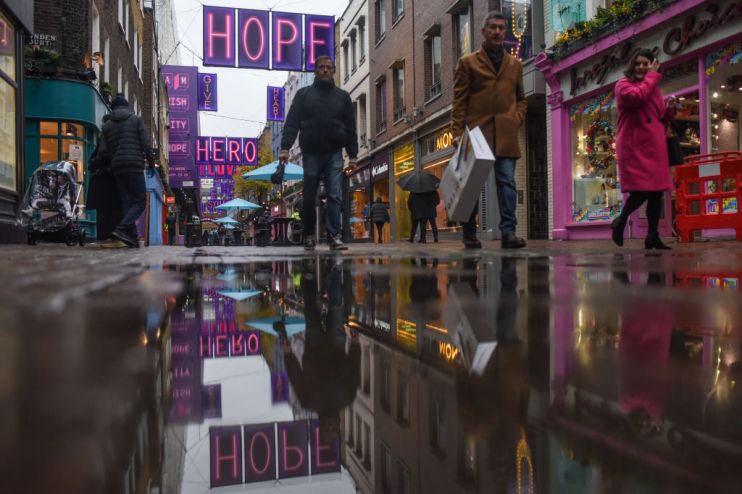Retail sales suffer worst year on record as lockdowns bite

UK retail sales suffered their worst year on record in 2020 as Covid-19 lockdown measures decimated customer numbers.
In-store sales of non-food items — which includes all non-essential retailers — dropped by almost a quarter last year compared to 2019.
For 2020 overall, total sales declined 0.3 per cent on the previous year, marking the worst performance since records began in 1995, according to the latest BRC-KPMG retail sales monitor.
While food growth grew 5.4 per cent thanks to stay-at-home orders and the closure of pubs and restaurants, this was offset by a five per cent decline in non-food items.
The figures showed a slight improvement in trading in December, with total sales up 1.8 per cent during the crucial festive period.
This was above the 12-month average decline of 0.3 per cent, but below the three-month average growth of 2.5 per cent.
While many brick-and-mortar retailers have been pushed to the brink of collapse as a result of the pandemic, the figures highlighted the huge boost for online retailers during the crisis.
Online non-food sales jumped 36.2 per cent compared to 2019, rising to a 44.8 per cent increase in December.
“With shops still closed for the foreseeable future, costing stores billions in lost sales, many retailers are struggling to survive,” said BRC chief executive Helen Dickinson.
“To avoid the unnecessary loss of shops and jobs, government should announce an extension to business rates relief for the worst-affected businesses as soon as possible. With many retailers making decisions over their future, the government must act decisively.”
Spending slump
Separate figures released today by Barclaycard showed consumer spending declined in December as tighter restrictions hampered the high street.
Spending was 2.3 per cent lower last month — the largest decline since June — as retailers and hospitality venues were forced to close and Brits cancelled Christmas plans.
Physical retailers were among the hardest hit by new Covid-19 measures, while bars and pubs suffered a 71.4 per cent drop in spending and restaurants declined 65.4 per cent.
Spending on essential items, however, was up 4.5 per cent in December as Brits stocked up for festivities.
This was spurred on by a 14.7 per cent rise in supermarket shopping and an 88 per cent surge in online grocery spend.
Spend on fuel dropped by a fifth as families were forced to stay apart at Christmas. While travel spend suffered another steep contraction, airlines and travel agents fared slightly better in December, suggesting optimism that vaccine rollouts could prompt a recovery this year.
“With the latest government guidance to stay at home and a vaccine roll-out on the horizon, we are all hopeful of a brighter and more prosperous year ahead,” said Barclaycard head of consumer products Raheel Ahmed.
“Yet for now, the reality of lockdown life remains and it’s once more a hugely challenging time for high-street retailers as well as the hospitality, leisure and travel industries.”